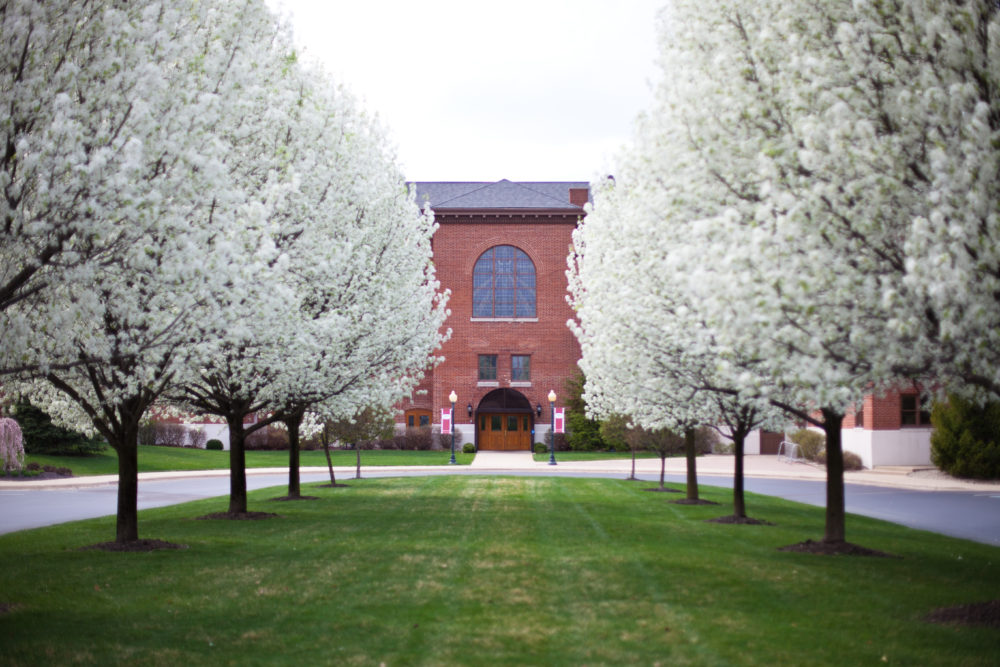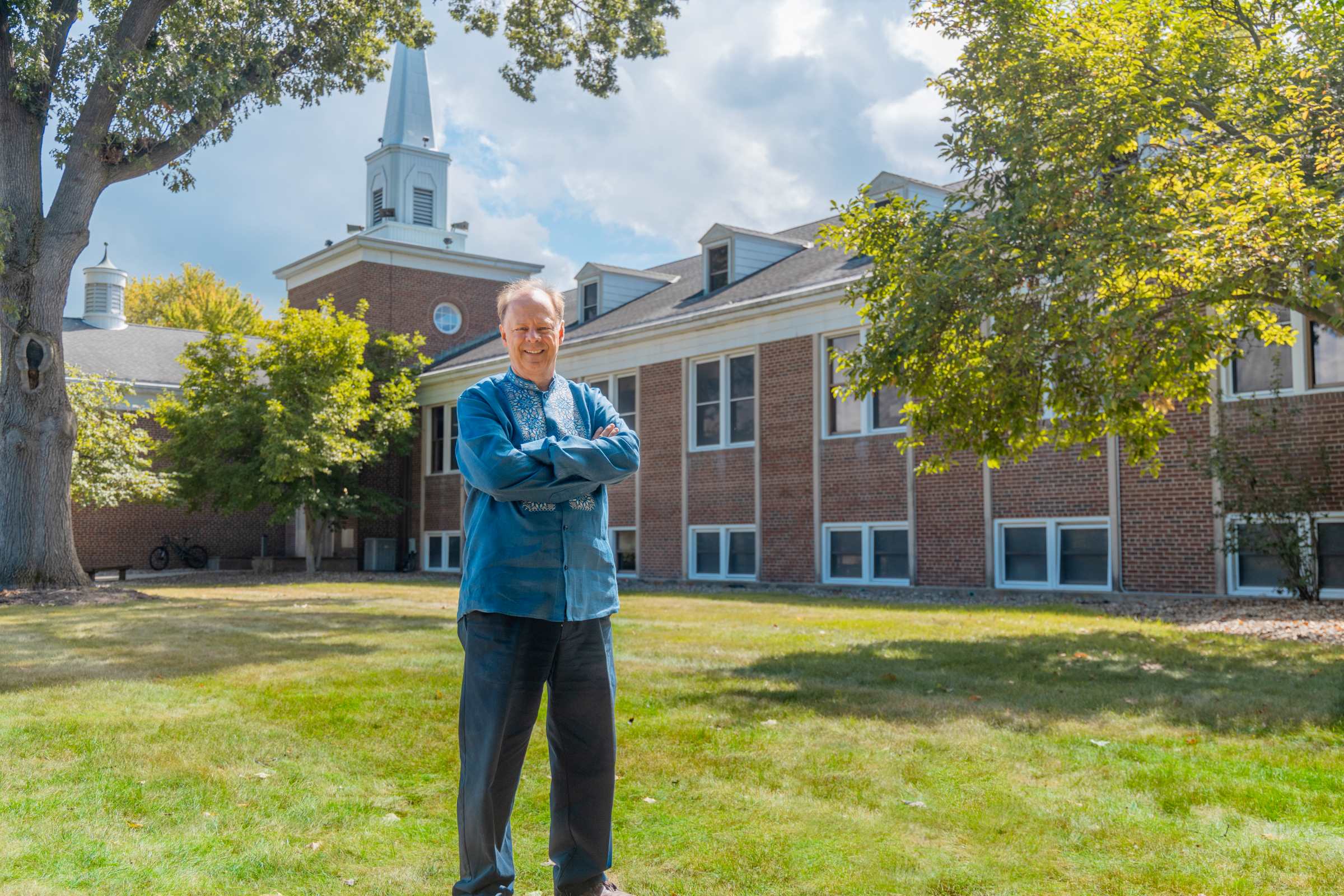June 17, 2022
What is Sanctification?
Written By Grace Theological Seminary
Tagged With Preaching & Pastoring Master of Divinity

When one becomes a pastor, the assumption made by many is that the pastor will have all the answers, even to the most difficult questions. Some of those questions will include cute questions from children, such as ‘What does God look like?’ Others will have a greater connection to the practical side of life, such as how to interpret commands such as the question, ‘What is sanctification?’
What is Sanctification?
Sanctification is one of those religious-sounding words that people in the church use, but may not understand what it means. In its most basic sense, to sanctify something is to set it apart for God’s special use and purpose. Therefore God’s people are sometimes said to be sanctified because they are set apart for God’s special purposes in the world: “Consecrate yourselves, therefore, and be holy; for I am the LORD your God. Keep my statutes, and do them; I am the LORD who sanctifies you” (Leviticus 20:7-8).
As this verse helps us see, the word sanctification is closely related to holiness. The word sanctification can be used similarly in the New Testament. Thus in one sense, believers are already sanctified because of what Jesus has done for them. Hebrews 10:10 tells us that as followers of Christ “we have been sanctified through the offering of the body of Jesus Christ once for all.”
But most of the time when Christians use the word sanctification, they are referring to the progressive work of God to make a believer more like Jesus Christ. As such Paul can write, “For this is the will of God, your sanctification: that you abstain from sexual immorality” (1 Thessalonians 4:3). He commands Christians to “present your members as slaves to righteousness leading to sanctification” (Rom 6:19). Because believers have been set free from their slavery to sin, “the fruit you get leads to sanctification and its end, eternal life” (Romans 6:22).
In sanctification, both God and the Christian have specific responsibilities. Paul commands believers to “work out your own salvation with fear and trembling, for it is God who works in you, both to will and to work for his good pleasure” (Philippians 2:12-13). God is the one who does the work of making us more like Christ, and we participate in that work by a life of continually turning away from sin and demonstrating our faith in Christ by obeying God’s commands. The Holy Spirit plays a key role in this process; as we walk in the power of the Spirit we “will not gratify the desires of the flesh” (Galatians 5:16).
In addition to empowering us by his Spirit, God has given us other tools to grow when asking what is sanctification. Reading, studying, and being taught the Bible enables us to better understand who God is, what he has done for us, and how he calls us to live. Praying expresses our faith in the sovereign power of God to accomplish what only he can do. Fellowship with other believers encourages us to put our faith into practice by loving and bearing with one another. Giving weans our hearts off putting our trust in the fleeting things of this world and shows that we value the work of God even more than our own comfort. Sharing the gospel with others brings us the joy of participating in God’s work of extending his kingdom. All of these are different tools that God uses to make us more like Jesus.
As believers, our hope is fixed on the day when Jesus returns. But in the meantime, we are called to pursue our sanctification in anticipation of that day. John explains how these two realities relate to each other: “See what kind of love the Father has given to us, that we should be called children of God; and so we are. The reason why the world does not know us is that it did not know him. Beloved, we are God’s children now, and what we will be has not yet appeared; but we know that when he appears we shall be like him, because we shall see him as he is. And everyone who thus hopes in him purifies himself as he is pure” (1 John 3:1-3).
Because of what God has done for us in Jesus, we have already been set apart for his special purposes. What is sanctification? By the power of God’s Spirit we pursue growing in godliness so that we more clearly reflect Jesus Christ in our lives. We do so in anticipation of the day when Christ will return and complete the process of sanctification by making us perfect reflections of Christ.
Are you considering a calling to ministry? A Master’s of Divinity with the Exegetical Studies concentration is a fantastic choice for the pastor who wants to be able to answer all of the questions. This degree will prepare you to preach and teach in a way that is faithful to God’s Word. Explore the possibilities at Grace Theological Seminary today and be prepared to answer God’s call.
Matthew S. Harmon
Matthew S. Harmon, Professor of New Testament studies, loves to help people understand the beauty of Jesus Christ as revealed in the Scriptures, seeing it as the key to life transformation (2 Corinthians 3:18). As a result, the focus of his ministry is teaching and preaching God’s word in various contexts. He has a passion for research and writing, specializing in the use of the Old Testament in the New Testament, biblical theology, commentary writing and the Pauline epistles. He is an active member of Christ’s Covenant Church, where he serves on the preaching team and regularly teaches Sunday School.
Share
Tagged With Preaching & Pastoring Master of Divinity



